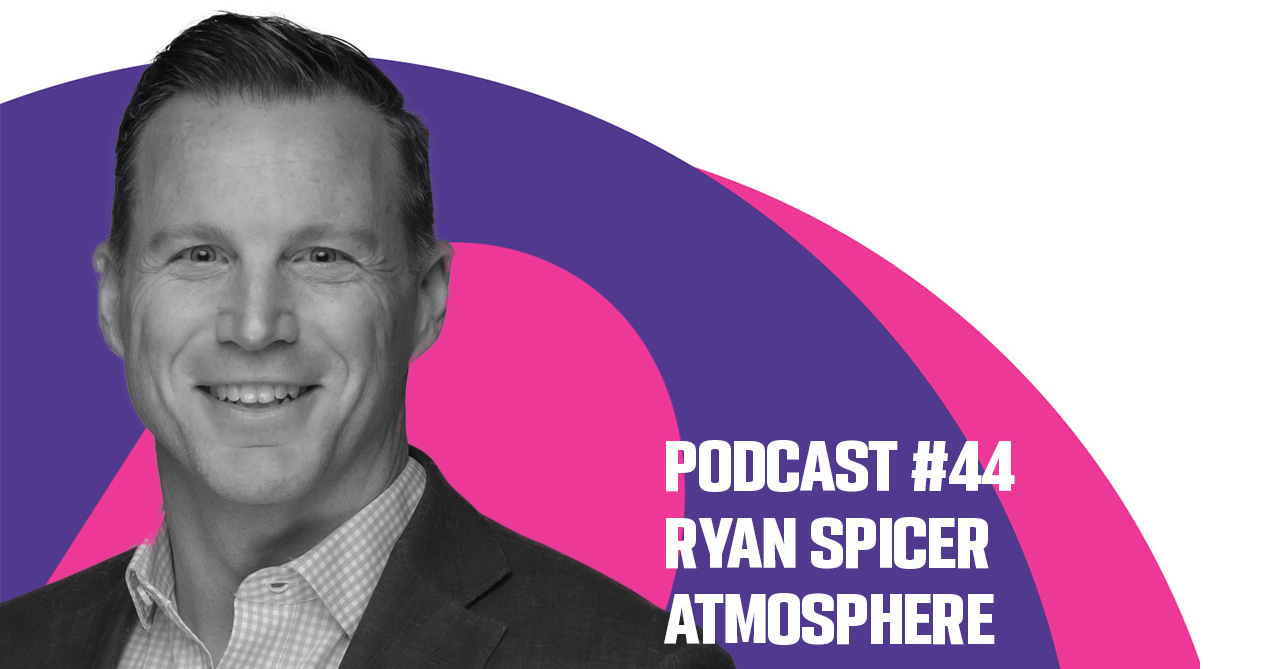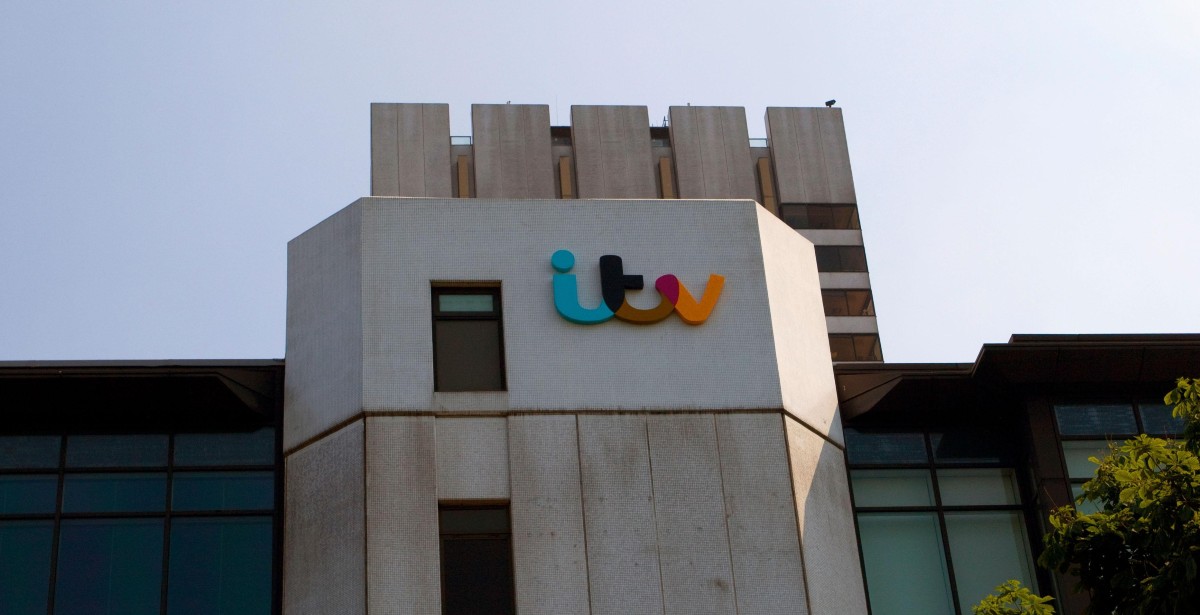In this week’s Week in Review: Atresmedia runs its first addressable TV ad campaigns in Spain, LiveRamp adds device IDs to its identity graph, and the EU agrees the final wording of its controversial new copyright law. To receive an update on the industry’s top stories every Friday, sign up to the weekly Video Round-Up.
Top Stories
Atresmedia Runs First Addressable TV Campaigns in Spain
Spanish broadcaster Atresmedia this week ran its first addressable TV ad campaign in Spain, claiming to be the first Spanish free-to-air broadcaster to do so. The campaign was based on the HbbTV technical standard which is found on a quarter of Spanish TV sets, and delivered ‘Digital Skin’ ads, which place a layer of interactive content on top of the linear television broadcast. Atresmedia says advertisers were able to target based on geography, and on whether a viewer has previously seen a certain ad or not.
The format has also been used by ProSiebenSat.1 and RLT in Germany, and Viacom in Italy. While broadcasters say there’s value in the format in its own right, it’s also seen as a precursor to true spot-replacement on linear broadcasts.
LiveRamp Adds Connected TV IDs to its Identity Graph
Identity resolution platform LiveRamp this week announced it is adding connected TV IDs to its cross-device identity graph IdentityLink. The IDs, based on household IP addresses, are the first device identifiers not linked to personal devices, meaning they’re not used to target individuals but entire households. But LiveRamp sees connected TVs as an important component to add to its device graph, with more consumption moving onto smart TVs and OTT devices.
LiveRamp CEO and director Scott Howe said that connected TV is the company’s fastest growing video channel, and the fastest growing piece of its TV business. “By linking individuals to the products and services they love, including smart TVs, connected TV devices, and streaming services, LiveRamp aims to infuse people-based data into every step of the CTV advertising experience,” he said.
Amid Tech Giant Protests, the EU Agrees its New Copyright Law
Despite months of lobbying from the digital tech giants, most vocally by Google, the European Union agreed a new copyright law this week which will place extra obligations on platforms hosting user-uploaded content. Two clauses in particular have been controversial. One makes platforms responsible for copyright violations on user-uploaded content, while the other prevents sites from posting anything other than “very short extracts” of news articles without a license from the original publication.
The tech giants aren’t the only critics. Internet freedom campaigners have argued that the new law will kill off internet ‘memes’, which often involve small snippets of copyrighted content, and that the law places expensive obligations on smaller platforms which can’t necessarily afford copyright filters.
The Week in Tech
Brightcove Acquires Ooyala’s Online Video Platform for $15 Million
Brightcove, a tech company specialising in cloud services for video, this week announced it has bought Ooyala’s online video platform (OVP) for $15 million. The deal includes Ooyala’s video content management and publishing platform Backlot, Analytics, Live, and the underlying IP. Brightocove will also take on substantial portions of Ooyala’s engineering, support and sales staff.
The two companies operate in very similar spaces – so similar in fact that Ooyala has previously filed a lawsuit against Brightcove for theft of trade secrets. Brightcove already operates its own OVP business, and CEO Jeff Ray believes that bringing Ooyala’s OVP into the fold will make Brightcove the “undisputed leader” in the space. Read the full story on VAN.
Criteo Stocks Soar After Return to Positive Growth
French ad tech company Criteo saw its share price shoot up by 17 percent on Wednesday after it reported a return to positive growth in its Q4 financial results. Criteo had lost over 50 percent of its value since mid-2017, due in large part to Apple restricting use of cookies on its Safari browser, which caused significant damage to Criteo’s core retargeting business. But total revenues for 2018 grew 0.2 percent year-on-year to $2.3 billion, driven in large part by non-retargeting products, marking what CEO JB Rudelle described as an “inflection point” for the company.
“Importantly, our new solutions grew 54 percent year-over-year and represented more than 13 percent of revenue ex-TAC [traffic acquisition costs], compared to 10 percent in Q4 2017,” he said.
FreeWheel Chooses Nielsen DMP
Comcast-owned FreeWheel announced this week it has expanded its relationship with Nielsen to include its data management platform (DMP), which it says will help advertisers analyse, build and target audiences across connected TV, over-the-top (OTT) and digital video. The DMP will be accessible through FreeWheel’s DRIVE suite of ad solutions.
“Nielsen and Freewheel are making omnichannel, audience-based TV advertising a reality. We’re first movers when it comes to the tectonic shift that’s happening in the industry – one that will soon connect advertising delivery across digital and linear TV ecosystems,” said Damian Garbaccio, EVP at Nielsen.
AnyClip Releases Free Video Player Solution
AnyClip this week announced the launch of a new free video player for publishers in the digital media ecosystem. The company says the player eliminates high operating costs associated with delivering video on publishers’ websites, saying it provides free video streaming, free content streaming and no ad serving fees. Publishers can either deliver their own video, or use AnyClip’s library of video content – and similarly they can execute ad campaigns themselves, or leverage AnyClip’s ad campaigns.
Telaria Offers The Trade Desk’s Unified ID Solution
Telaria announced this week it will offer The Trade Desk’s unified ID solution to its demand partners, which it says is part of an effort to increase efficiencies across the ecosystem by reducing the number of cookie syncs necessary. “The Trade Desk’s unified ID helps address an important need in the industry, the standardisation of cookie IDs which helps minimise some of the complexity in the digital advertising ecosystem,” said Telaria COO Katie Evans.
AT&T to Consolidate All Programmatic Ad Spending with AppNexus
US telco AT&T announced this week it will begin funnelling all its programmatic ad spending through AppNexus, which is bought last year. The move had been anticipated after the AppNexus acquisition, and will see the programmatic portion of AT&T’s estimated $1.6 billion ad spend handled by the AppNexus demand-side platform (DSP).
The Week in TV
First Content Details for WarnerMedia Streaming Service Revealed
Kevin Reilly, the man heading up WarnerMedia’s upcoming streaming service, revealed this week that the new offering will host over 42,000 hours of content drawn from HBO, DC, Looney Tunes, Turner, CNN and other media brands AT&T owns. Reilly said that some content owned by WarnerMedia might be made exclusive for the new service, including Friends, which Netflix paid out $100 million to license for 2019. The service will hold a mixture of existing WarnerMedia content, third party licensed content, and original shows and movies, with the platform set to begin commissioning original content this spring.
Reilly also revealed that the new product is set for a US-only launch in Q4 this year, with an international roll out not yet given a specific time frame.
Vodafone to Trial 5G TV Broadcasts in Germany
Vodafone Deutschland has announced it is partnering with local German broadcaster WDR to trial broadcasting of live and on-demand TV content via 5G mobile networks. The two will work together to test 5G broadcasting in existing 5G ‘labs’ in Düsseldorf and Aldenhoven. The trial will involve delivering WDR content via a 5G tests system to 5G-enabled mobile phones and tablets in 4K quality, and will run through until 2020. Read the full story on VAN.
Ofcom Requires More Transparency from the BBC
British communications regulator Ofcom this week published two decisions on the BBC’s commercial and commissioning activities, requiring additional reporting and transparency from the broadcaster to ensure it’s fulfilling its obligations. The BBC is required to maintain operational separation between its publicly funded services and its commercial division, to ensure its commercial business doesn’t have an unfair advantage over competitors, and Ofcom is seeking more transparency around how the BBC is maintaining this separation.
The BBC also came under scrutiny in the Cairncross Review (see more below), which suggested that the BBC’s free (and ad free) content is making life difficult for commercial news publications.
The Week in Publishing
UK Competition Authority Must Investigate Digital Ad Market, says Government Commissioned Review
The UK’s Competition and Markets Authority (CMA) is to investigate the digital ad market to ensure there is fair competition, according to the final report of the Cairncross review which was commissioned by UK Prime Minister Theresa May. The review has been investigating the sustainability of the production and distribution of high-quality journalism in the UK. In its final report the review recommended that there should be increased regulatory oversight of online platforms’ distribution of news. Read the full story on VAN.
TechCrunch Launches Subscription Product
Verizon-owned tech publication TechCrunch announced this week it is launching a new subscription product, Extra Crunch. Extra Crunch will host “an additional layer of content, coverage, product and events-based offerings”, and is aimed at TechCrunch’s most regular and engaged readers. Subscriptions will be available in the US, Canada, UK, France, Germany and Spain, and will cost $15 per month.
TechCrunch follows in the footsteps of a number of publications who have recently introduced subscriptions to compensate for stuttering ad revenue, including Bloomberg and Condé Nast.
Meredith Corp Doubles Ad Revenues
US media giant Meredith Corp’s advertising revenues more than doubled year-on-year in its fiscal Q2, reaching $489 million, but digital ad revenue growth was “basically flat”, on a comparable basis according to CEO Tom Harty. Meredith Corp has ramped up its ad sales following the acquisition of Time Inc. last year, and is now seeking improved performance of Time properties, particularly in digital.
The Week for Agencies
IPG Soars and Omnicom Struggles in Q4, but Fortunes May Change in 2019
Agency holding group Interpublic Group posted very strong Q4 results this week, with organic net revenue growing 7.1 percent year-on-year to $2.41 billion, bringing total annual revenue to $8 billion. The group outperformed rival Omnicom, which reported a 2.2 percent drop in fourth quarter revenues, though total organic growth for the year reached 3.2 percent. However, fortunes for the two could change as they cycle through client gains and losses. IPG lost some major clients last year, including the US army account, which was won by Omnicom. Omnicom also picked up Ford’s creative account, and these new client revenues will kick in around Q2 this year, according to Omnicom CEO John Wren
Top UK Advertisers Slashed Traditional Ad Spending in 2018
The UK’s biggest traditional advertisers substantially cut back their ad spending across TV, press, radio, cinema and outdoor last year according to research from Nielsen. P&G, last year’s highest spending advertiser on traditional mediums, spent £186 million last year in the UK, down from £196 million in 2017. Sky meanwhile cut spending from £177 million to £124 million, while Unilever slashed spending from £116 million to £82.8 million.
India is World’s Fastest Growing Major Ad Market says GroupM
Total ad spend in India next year will grow 14 percent this year, making it the fastest growing major ad market in the world, according to GroupM. “India is unique among key markets and will witness growth in all media segments and not just digital,” said GroupM South Asia COO Prasanth Kumar. “Offline media is poised to continue to grow and will contribute to being around 80 percent of ad spends in 2019.”
Hires of the Week
Euan Jarvis Picked to Lead Dentsu Aegis Network in UK & Ireland
Dentsu Aegis Network has appointed its current president of global clients Euan Jarvie to be its UK and Ireland CEO. Jarvie, who has been with Dentsu Aegis Network for four years, will work alongside Nick Waters who was recently appointed as executive chairman of UK and Ireland.
The Washington Post Chooses Joy Robins to Lead Ad Solutions
The Washington Post has recruited Quartz’s Joy Robins to serve as its new chief revenue officer, where she will take control of the publisher’s ad business. Robins worked as CRO at Quartz too, where she is credited as helping drive triple-digit growth.
This Week on VAN
How Smart TV Manufacturers Are (and Aren’t) Getting into Advertising, read more on VAN
UK Competition Authority Must Investigate Digital Ad Market, says Government Commissioned Review, read more on VAN
Vodafone to Trial 5G TV Broadcasts in Germany, read more on VAN
Brightcove Acquires Ooyala’s Online Video Platform for $15 Million, read more on VAN
Ad of the Week
Ally Bank, Ratings, Anomaly, R/GA and MediaCom
Ally Bank’s new campaign encourages customers to be more discerning with which bank they sign up with, by pointing out the importance of looking at online reviews for other services. The most entertaining spots feature parody ads from some of these ‘two star’ services.
https://youtu.be/H1d1g4AXS7w





